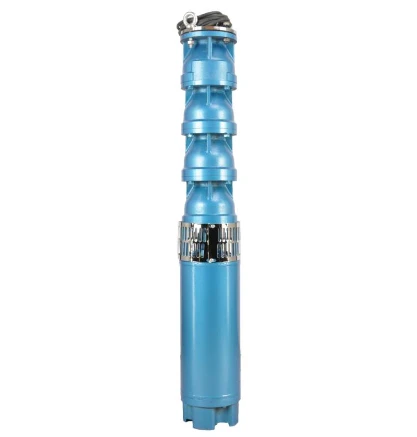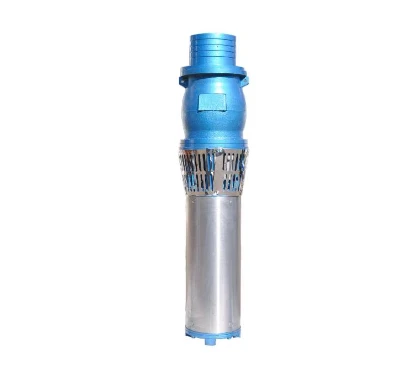Nov . 27, 2024 08:46 Back to list
Understanding the Functionality of Deep Well Pumps in Water Extraction Systems
The Working Principle of Deep Well Pumps An In-Depth Exploration
Deep well pumps are crucial components in water extraction systems, enabling the efficient transportation of groundwater from deep underground sources to the surface. These pumps are widely used in agricultural irrigation, municipal water supply, and industrial applications. Understanding the working principle of deep well pumps is essential for maximizing their efficiency and lifespan. This article delves into the basic operation, components, and types of deep well pumps.
Basic Operation
At its core, a deep well pump operates on a simple principle it creates a difference in pressure that enables the movement of water. The primary mechanism involves drawing water from a well located deep beneath the surface and elevating it to the surface for various uses. The functionality hinges on two vital components the motor and the pump itself.
The motor, usually located at the surface, drives the pump through a long shaft that extends down to the pump. As the motor powers the pump, it creates a vacuum that draws water into the pump's casing from the well. Once inside, the kinetic energy generated by the motor pushes water upward through a series of stages—each comprising impellers and diffusers—that incrementally lift the water to the surface.
Components of Deep Well Pumps
Deep well pumps consist of several key components that work together to ensure optimal operation
1. Impellers These rotating blades are the heart of the pump, designed to impart energy to the water. The impeller's shape and size determine the pump's flow rate and pressure. 2. Diffusers Located in close proximity to the impeller, diffusers convert the kinetic energy of the water into pressure. They allow water to exit the impeller while reducing its velocity, thereby increasing its energy efficiency.
3. Pump Shaft The shaft connects the motor to the impeller and transmits rotational motion. It is typically made from durable materials to withstand the harsh conditions of deep-well applications.
4. Column Pipe This long pipe serves as a conduit for water traveling from the pump to the surface. The structure and material of the column pipe must withstand high pressure and corrosion.
deep well pump working principle

5. Check Valve Positioned in the column pipe, this valve prevents backflow of water when the pump is turned off, maintaining hydraulic pressure in the system.
6. Motor The motor drives the pump, often powered by electricity, diesel, or another fuel source. Submersible motors are commonly used in deep well applications because they are submerged in the water, allowing them to stay cool and operate efficiently.
Types of Deep Well Pumps
There are several types of deep well pumps, each suited for specific applications
1. Submersible Pumps These pumps are submerged in water, making them ideal for deep wells. They are efficient and can handle higher head pressures, making them prevalent in agricultural and municipal applications.
2. Line Shaft Turbine Pumps These pumps transport water from deep wells without being submerged. They utilize a series of impellers and are often used in large-scale water supply systems.
3. Jet Pumps Typically used for shallow wells and low-flow applications, jet pumps create a vacuum that draws water into the pump. However, they are less efficient for deep installations compared to submersible pumps.
Conclusion
Deep well pumps are indispensable for accessing groundwater resources in various sectors. Their working principle, rooted in the creation of pressure differences, allows for the effective transportation of water from deep beneath the earth's surface. By understanding their components and types, users can make informed decisions about installation, maintenance, and operation. As the demand for fresh water continues to rise globally, optimizing deep well pumping systems will be essential for sustainable water management. Whether in agriculture, industry, or municipal services, the reliable operation of deep well pumps will play a pivotal role in securing one of our most precious resources—water.
-
Submersible Well Pumps Buying Guide
NewsMay.14,2025
-
Submersible Sump, Dirty Water, Borehole Pumps Demystified
NewsMay.14,2025
-
Stainless Steel Submersible Pumps Superior Performance
NewsMay.14,2025
-
High Flow Submersible Well Pumps Essential Features
NewsMay.14,2025
-
Choosing the Best Stainless Well Pump
NewsMay.14,2025
-
A Comparison of Submersible Pumps Filled with Water and Oil
NewsMay.14,2025
-
 Submersible Well Pumps Buying GuideReliable access to clean water is fundamental for residential, agricultural, and commercial operations, making the selection of an appropriate well pump system one of the most important infrastructure decisions.Detail
Submersible Well Pumps Buying GuideReliable access to clean water is fundamental for residential, agricultural, and commercial operations, making the selection of an appropriate well pump system one of the most important infrastructure decisions.Detail -
 Submersible Sump, Dirty Water, Borehole Pumps DemystifiedThe world of water management has undergone a technological revolution, with advanced pumping systems now offering unprecedented efficiency and reliability across diverse applications.Detail
Submersible Sump, Dirty Water, Borehole Pumps DemystifiedThe world of water management has undergone a technological revolution, with advanced pumping systems now offering unprecedented efficiency and reliability across diverse applications.Detail -
 Stainless Steel Submersible Pumps Superior PerformanceModern water extraction and fluid handling systems demand equipment capable of withstanding harsh environments while maintaining peak efficiency.Detail
Stainless Steel Submersible Pumps Superior PerformanceModern water extraction and fluid handling systems demand equipment capable of withstanding harsh environments while maintaining peak efficiency.Detail
